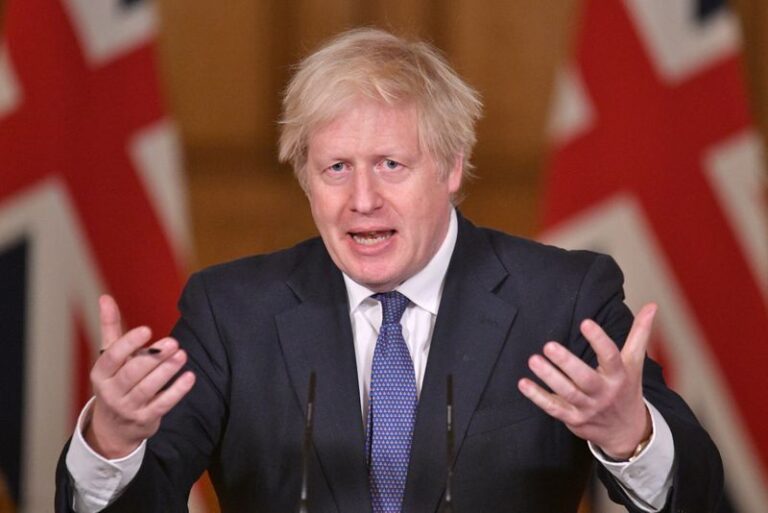
(Reuters) – Britain announced plans to hold the first in-person meeting of the G7 for nearly two years in June, inviting the leaders of major developed economies to a picturesque seaside village to discuss rebuilding from the pandemic and climate change.
Prime Minister Boris Johnson says he wants to use Britain’s presidency of the G7 to forge a consensus that the global economy must recover from the COVID-19 crisis in a pro-free trade and sustainable way.
“Coronavirus is doubtless the most destructive force we have seen for generations and the greatest test of the modern world order we have experienced,” he said in a statement. “It is only right that we approach the challenge of building back better by uniting with a spirit of openness to create a better future.”
Britain has suffered badly during the health crisis, with the highest death toll in Europe of more than 88,000 people.
But, while a third wave of the virus causes more than 1,000 deaths per day, the country is leading the way on vaccinations having been the first in the world to authorise their use, and hopes to have much of the population protected within months.
Last year’s G7 meeting, due to be hosted by U.S. President Donald Trump, was cancelled due to the pandemic, meaning the leaders of Britain, Germany, France, the United States, Italy, Japan, the European Union and Canada have not met in person since the 2019 meeting in Biarritz, France.
The Sunday Telegraph newspaper said the British government hoped the event would be the occasion for U.S. President-elect Joe Biden’s first trip to Europe after he becomes president on Jan. 20.
“I don’t think he will visit anywhere else before the G7, except possibly Canada,” the newspaper quoted an unnamed British government source as saying.
Johnson has also invited Australia, India and South Korea to attend.
The summit will take place in the tiny resort of Carbis Bay in Cornwall, southwest England – an area now most famous for its beaches and surfing but also home to fishing fleets and once an important mining area.
“Two hundred years ago Cornwall’s tin and copper mines were at the heart of the UK’s industrial revolution and this summer Cornwall will again be the nucleus of great global change and advancement,” Johnson said.






